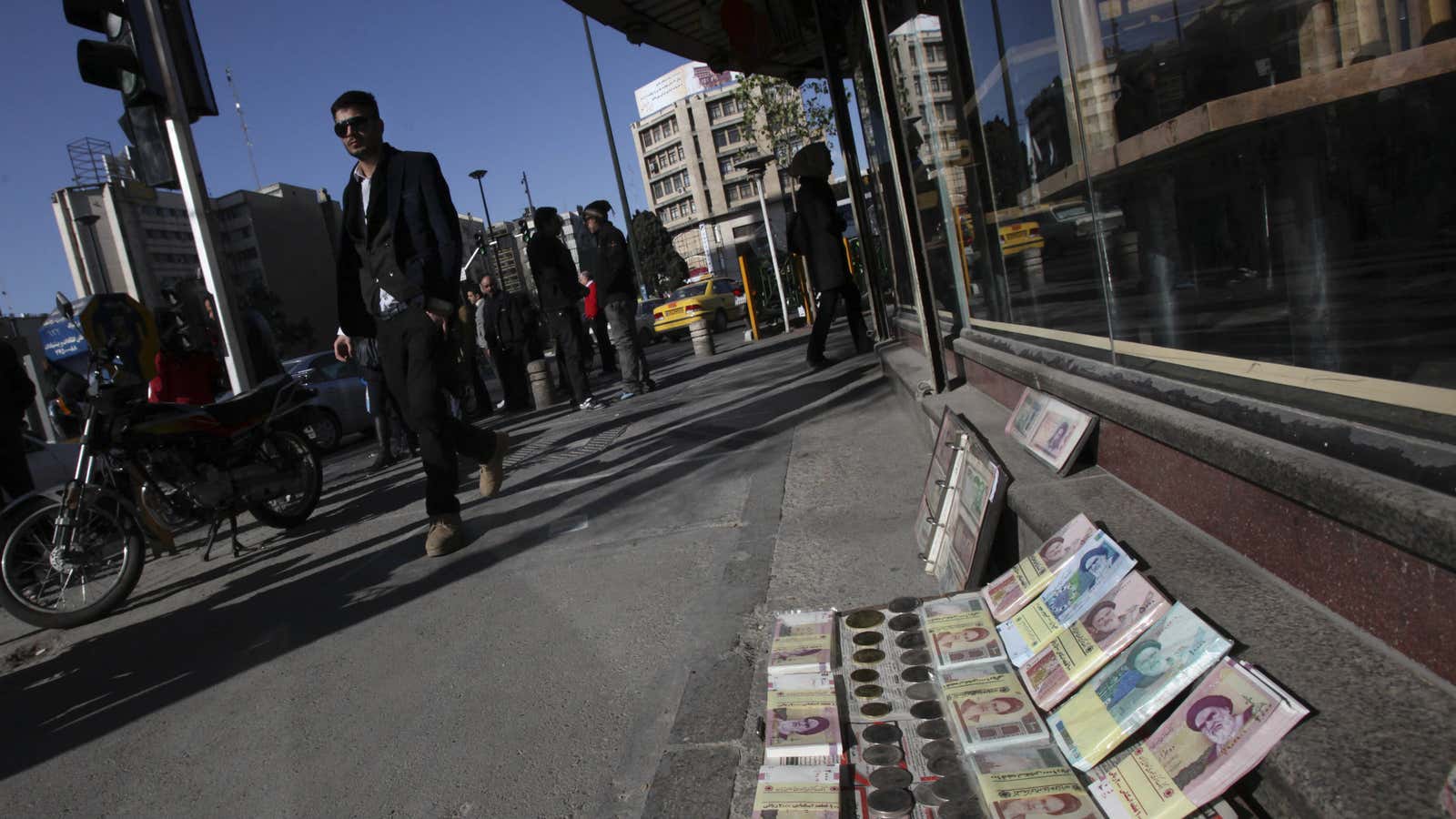When Tehran says it might join talks over its nuclear program later this month, it appears to be addressing the Iranian people as much as the international community: With presidential elections five months away, Iranian leaders want to avoid antagonizing voters who, while fiercely nationalistic, are also reeling from economic sanctions.
Iranian Foreign Minister Ali Akbar Salehi told an audience in Munich on Feb. 3 that Tehran will participate in talks scheduled in the Kazakhstan capital of Astana—if Washington “comes with authentic intention.”
Salehi did not spell out what he means it will take for Iran to attend. But in the past a Tehran precondition for serious talks has been that the US lift oil sanctions, and renounce the use of force to stop Iran from becoming a nuclear power. The US, in turn, has insisted that Tehran forsake nuclear weapons.
The international brinksmanship is regarded as the greatest global risk of major war at the moment, with Israel openly threatening to attack Iran should it perceive an imminent tipping point to its achieving nuclear capability.
Ordinary Iranians overwhelmingly support the development of nuclear capability. But they are also suffering from sanctions on oil exports–economic stress that could morph into political discontent prior to the June 14 election. In the 2009 presidential elections, Iranian voters heavily supported the opposition, and Salehi’s carefully modulated rhetoric may be part of the regime’s effort to avoid a reprise.
That the Iranians are playing the nuclear issue both ways was signaled Jan. 31, when they announced that they intend to deploy 3,132 advanced centrifuges. The Eurasia Group’s Cliff Kupchan says that the new centrifuges could shorten the time needed to produce enough highly enriched uranium for a 25-kilogram bomb to four months. Iran’s current centrifuges require a year to produce the same amount of highly enriched uranium, he said in a note to clients.
The announcement must be viewed skeptically, Kupchan said. “Tehran virtually always overstates its nuclear and military achievements, whether they pertain to a centrifuge or a new missile,” he wrote. “Iran is now particularly prone to make exaggerated and popular claims, given the toll sanctions have taken on the economy.”
Yet what Iran is not doing is suggesting an intention to make concessions. The rial lost 40% of its value in 2012, “the population [is] on edge,” and some officials on the outer edges of power are pushing for negotiations with the West, Kupchan wrote on Jan. 28. “[But ] there is no sign that Khamenei or those around him are, yet at least, contemplating a less aggressive approach to the nuclear program,” he said.
In his remarks, Salehi was responding to a remark by US Vice President Joe Biden to the same Munich conference that Washington is prepared for bilateral nuclear talks with Tehran. Like Salehi, Biden employed a caveat—“when the Iranian leadership, Supreme Leader, is serious.”
